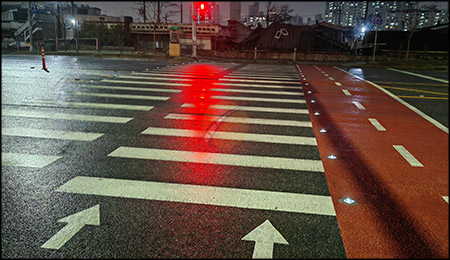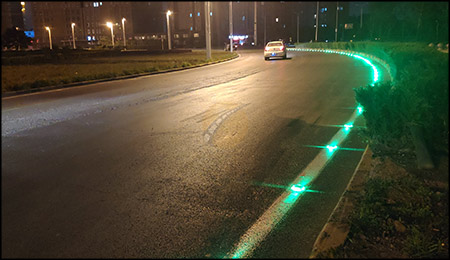The Key Role of Solar Road Stud Lights in Environmental Protection
Jan 17, 2025
In the quest for sustainable development and eco-friendly solutions, solar road stud lights have emerged as a revolutionary technology. These innovative devices, which harness solar energy to illuminate roads, not only enhance traffic safety but also play a crucial role in reducing energy consumption and minimizing environmental pollution. This article explores the environmental benefits and sustainability potential of solar road stud lights.
Traditional road lighting systems rely heavily on grid electricity, often generated from non-renewable sources like coal and natural gas. Solar road stud lights, however, use solar panels to capture and store energy from the sun, providing a clean and renewable alternative. Key advantages include:
By replacing traditional lighting systems with solar-powered alternatives, significant reductions in carbon emissions can be achieved. Solar road stud lights contribute to environmental protection through:
Conventional streetlights often cause excessive illumination, contributing to light pollution that affects ecosystems and human health. Solar road stud lights are engineered to focus light directly on road surfaces, reducing unnecessary brightness and glare. Benefits include:
Solar road stud lights are integral to creating eco-friendly and smart transportation systems. Their contribution to sustainability includes:
While the environmental benefits of solar road stud lights are undeniable, challenges remain:
Solar road stud lights are a shining example of how technology can align with environmental goals. By reducing energy consumption, cutting emissions, and addressing light pollution, they represent a vital step toward sustainable traffic infrastructure. As more regions adopt this technology, the environmental and societal benefits will continue to grow, paving the way for a greener and safer future.
1. Reducing Energy Consumption
Traditional road lighting systems rely heavily on grid electricity, often generated from non-renewable sources like coal and natural gas. Solar road stud lights, however, use solar panels to capture and store energy from the sun, providing a clean and renewable alternative. Key advantages include:
- Independence from Grid Power: Solar road studs function autonomously, reducing dependency on fossil-fuel-powered electricity.
- Energy Efficiency: With LED technology and smart energy management, these devices consume minimal energy while delivering optimal brightness.
2. Minimizing Carbon Footprint
By replacing traditional lighting systems with solar-powered alternatives, significant reductions in carbon emissions can be achieved. Solar road stud lights contribute to environmental protection through:
- Lower Emissions: Unlike conventional lights, solar-powered road studs produce no greenhouse gases during operation.
- Sustainable Materials: Many modern solar road studs are designed with eco-friendly materials that are durable and recyclable.
3. Addressing Light Pollution
Conventional streetlights often cause excessive illumination, contributing to light pollution that affects ecosystems and human health. Solar road stud lights are engineered to focus light directly on road surfaces, reducing unnecessary brightness and glare. Benefits include:
- Targeted Illumination: The focused lighting improves visibility without disrupting the natural environment.
- Preservation of Night Skies: Reduced light spillover helps protect nocturnal wildlife and maintain the natural beauty of the night sky.
4. Promoting Sustainable Traffic Solutions
Solar road stud lights are integral to creating eco-friendly and smart transportation systems. Their contribution to sustainability includes:
- Smart Integration: Advanced solar stud lights can integrate with intelligent traffic management systems to optimize road safety and energy use.
- Enhanced Safety: These lights improve road visibility in low-light conditions, reducing the risk of accidents and energy-intensive emergency responses.
5. Examples of Environmental Impact
- Remote Areas: In off-grid regions, solar road stud lights provide essential illumination without the need for expensive and environmentally damaging infrastructure.
- Urban Projects: Cities worldwide are adopting solar road studs to lower energy consumption and promote green urban development.
6. Overcoming Challenges
While the environmental benefits of solar road stud lights are undeniable, challenges remain:
- Initial Investment: High upfront costs can deter adoption, though long-term savings and subsidies are making them more accessible.
- Durability and Maintenance: Ensuring the longevity and proper functioning of solar road studs in harsh conditions requires ongoing innovation and robust design.
Solar road stud lights are a shining example of how technology can align with environmental goals. By reducing energy consumption, cutting emissions, and addressing light pollution, they represent a vital step toward sustainable traffic infrastructure. As more regions adopt this technology, the environmental and societal benefits will continue to grow, paving the way for a greener and safer future.







